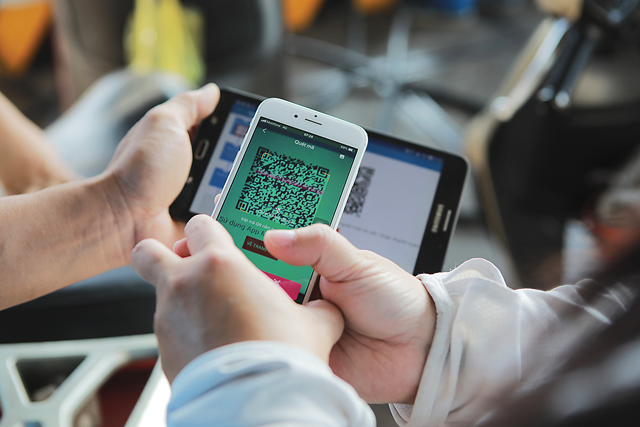Non-physical banking models gaining traction
Forum hears of the benefits to be had as Vietnam embraces the digitalization of its banking sector.

Covid-19 and the overall trend towards digitalization in Vietnam are the main factors accelerating the transformation to non-physical models at banks, analysts told the “Developing smart banks in the age of industrialization and modernization to 2030, with a vision to 2045” forum held by the Party Central Committee’s Economic Commission on November 18.
Digital transformation in the banking sector has achieved positive results in recent times, Deputy Governor of the State Bank of Vietnam Pham Tien Dung told the gathering.
Regarding banking services, payments on mobile devices has grown strongly every year, by 90 per cent in terms of quantity and 150 per cent in terms of value. Many banks have over 90 per cent of transactions performed on digital channels.
According to Ms. Dang Tuyet Dung, Director of Visa in Vietnam and Laos, cash payments decreased significantly amid the Covid-19 pandemic. Prior to that, there were 6.8 cash transactions out of every ten transactions, but during the pandemic that number fell to just 5.4.
Mr. Bruce Delteil, Managing Director of McKinsey & Company Vietnam, said the strong growth of fintech companies has contributed to improving customer access to and use of digital financial services.
A survey by McKinsey & Company revealed that 80 per cent of Vietnamese customers use digital banking at least once a month, while the figure in 2017 was only 41 per cent. Fifty-six per cent of customers are willing to use other financial solutions from fintech companies, and 70 per cent of Vietnamese respondents said they are willing to buy products online, while 30 per cent have actually done so.
Mr. Delteil predicted that Vietnam’s digital ecosystem will reach a scale of $50 billion to $100 billion in the near future.
However, there are more problems that need to be addressed, such as information security and safety, the legal framework, and customer attraction.
Business insiders have predicted that, in the near future, fintech companies could become bank customers, strategic partners, or even competitors in the field of personal consumer lending and payment services.





![[Interactive]: Economic overview - July 2025](https://media.vneconomy.vn/400x225/images/upload/2025/08/06d54ac72a-8805-4fcc-b167-1219b8e73c8d.png)

